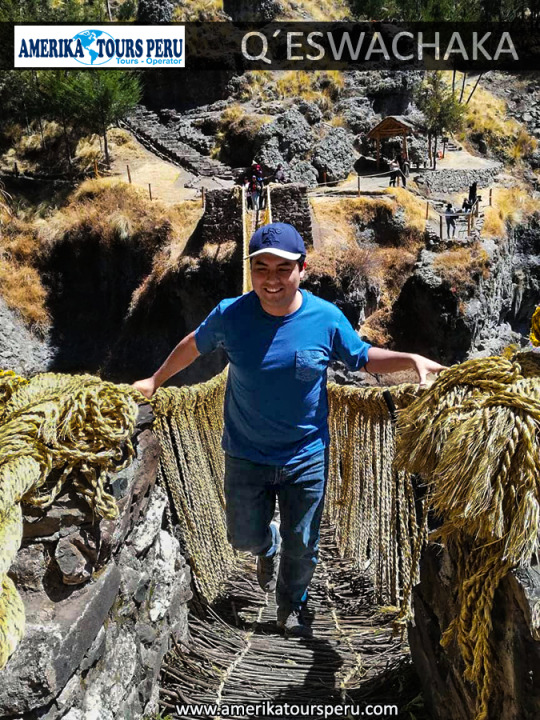Q´eswachaca Bridge
One of the most precious gifts that the Inca has given us is this suspension bridge that lies over the Apurímac River. Made from straw brava or ichu icho, this wonder is renewed year after year through a rite performed by the communities of Winch'iri, Chaupibanda, Ccollana Quehue and Perccaro. Therefore, do not miss the opportunity to cross its 28 meters long which will make you experience adrenaline to the fullest in this beautiful Inca construction.QUESHUACHACA TOUR INFORMATION:

Four Lagoons
The circuit of the four lagoons is located in the province of Acomayo, 107 km from the city of Cusco. It is made up of Pomacanchi, Acopia, Asnaqocha and Pampamarca. Among its attractions are the abundance of natural grass and fish.Small volcano in Pabellones, Yanaoca
This small volcano, approximately 4 meters in diameter, is located in the pavilion area of the Tungasuca district, which attracts attention to visitors and locals due to its unique size as it is considered the smallest in the world.A tradition that for the peasant communities of Huinchiri, Chaupibanda, Choccayhua and Qollana Quehue has subsisted for more than five centuries thanks to the intercession of the divinity. "If we do not build a new bridge every year, we risk provoking the wrath of the Pachamama (Mother Earth in Quechua) and the Apus (tutelary forces of nature)", "Whether we use it or not, we are exposed to natural catastrophes that they can ruin our crops of potatoes, beans, wheat or barley, and even misfortunes such as illness or death, ”says María Quispe, a 60-year-old woman who has participated in such a mission since childhood.
Before making the weaving of the bridge, a payment is made to the land, where the Paqo or Priest, makes a cloth altar with indigenous motifs in which he deposits coca leaves, llama fetuses and food that are offered to the Pachamama, since, like any human being, they are hungry and it is the obligation of their "children" (inhabitants) to satisfy them. The Paqo says that before the renovation of the bridge, the Apus indicate to him each year what his appetite is, since his tastes evolve and we should not always pay him with the same “delicacy”, to which the Apus are also invited to implore their protection and avoid accidents during renovation.
The women stay away from the work of rebuilding the bridge, a task reserved for men. The inhabitants of the place say that the woman attracts the q’encha, Quechua voice to designate bad luck, which can lead to divine "mishaps" during certain rituals.






0 comentarios:
Publicar un comentario